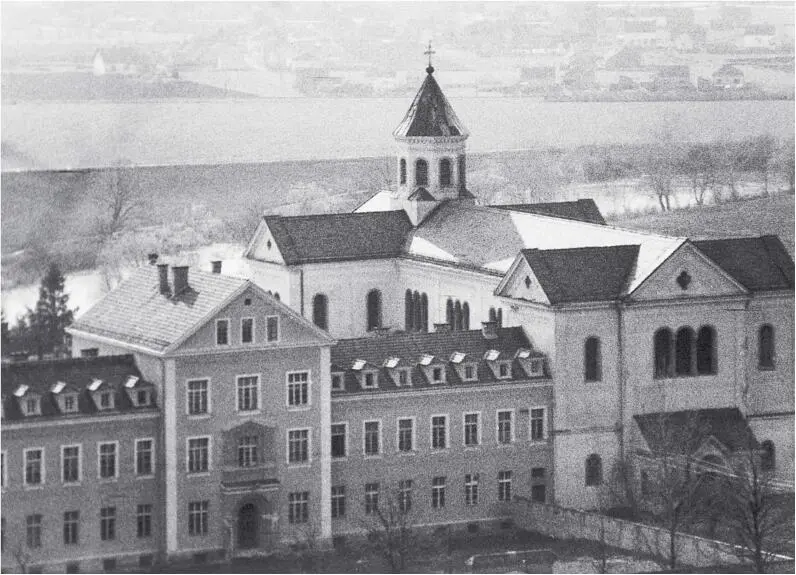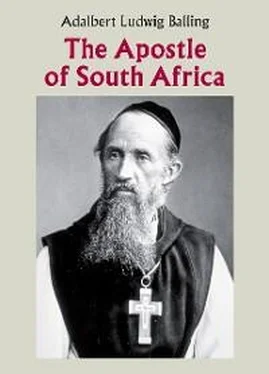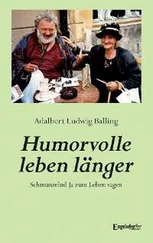“We desperately needed a shelter against the approaching winter … But it did not take our Turkish neighbours or the civic authorities long before they suspected that since we had no wives we must be Christian dervishes.”
Budding Mariastern did not only have to contend with scarce living space, unfavourable weather and Turkish hostilities, but also and more importantly, with differences in outlook among its own members. While Fr. Franz was ready to dispense from one or the other rule on account of the circumstances, two of his priests insisted on the literal observance of the rule. To humour them, he almost immediately began with the construction of a temporary monastery by hiring an Austrian contractor who had been recommended to him by the consul. That building was ready in September 1869.
Fr. Francis:
“Our little monastery stands on the edge of the oak wood but still on forest floor. It has one door opening towards the river and another, towards our future stables. A staircase leads from a central passage to the attic. The floors at ground-level are of packed clay but the attic has a wooden floor. The boards are not sawn but hewn from oak trees and made to lie flat by huge iron nails. The roof is something else. The local custom is to save shingles by placing them, not in double rows but singly. The attic is our dormitory. Though it is not high enough in the center for a man to stand upright, it offers room for many postulants. Lying flat on your back on a clear night you can see the stars twinkling through the chinks between the shingles. However, if by bad luck snow blows across the roof, our brown beards and bed covers turn white in no time. When we rise for choir at one or two in the morning, icicles fall off our beards. They melt only in the warm chapel.”
This description speaks volumes! The monks at Mariawald and Oelenberg could not have lived more primitively than their confreres at Mariastern. But it was precisely this stark simplicity which gained them candidates. On 7 September 1869, Eduard Biegner entered. He had travelled from Vienna to Hungary by a Danube steamer and then down the river Sava to Alt-Gradiska in Croatia. Unannounced, he stood at the door of the little monastery by the river and asked to be admitted as a Trappist.15
A Novice in a Monastery
By Francis Wendelin Pfanner
I am cheerful and content, because body and soul are in the right place.
I would not leave the monastery for anything in the world; here alone I wish to live and die.
To have nothing in this world, not even a shirt or a quill pen to write with, means something, if one renounces these things for the love of Jesus. Formerly, I had enough of everything but not the peace of mind I enjoy now.
Our monastery still needs furnishing. Because we have neither desks nor tables we write kneeling on the floor.
The Bosnian winter of 1869/1870 was particularly severe. The monks installed an iron stove in the passage of their temporary monastery, but the smoke of the half green firewood, relentlessly curling its way to all the rooms including the chapel, drove them into the fresh air as soon as they got up.
Fr. Francis:
“Early one morning we headed for the woods to dig out stubs for no other reason than to warm up. We picked up our iron cramps and picks which leaned against the wall under the roof and started out. I don’t know what I was thinking when I grabbed mine and began to work with it. But I soon found out, because my fingers started knocking against the shaft. Completely numb, they were in no time as hard as iron. I ran to dip them in cold water. Feeling returned but the skin came off. I could not say Mass for several days.”
Until they were able to install an oven, the Mariastern pioneers had their maize bread baked by one of the tenant women. Gradually, stables for horses and cows were completed as were several trade shops. Fr. Franz appointed one of the priests as master of novices and a Brother, as general manager. Much of his own time was taken up with writing letters to friends and benefactors, while Br. Zacharias continued to campaign for support and vocations. Particularly generous donors were “named in the register of benefactors” and promised “a share in all our prayers and works of penance”. According to Trappist custom, two Masses were said for benefactors every Friday and Sunday.
Exciting Events
The new monastery for which Fr. Francis and Br. Zacharias had been sent from Mariawald had become a reality. But what was Mariastern’s status in the Order? As could be expected, Abbot Ephrem, who had been defeated in Rome, was more than reluctant to officially admit it to the Order. As vicar general of his Congregation16 he wielded his power to the effect that no admission was granted. This was a bitter pill for the pioneers but nothing could stop them from plodding on, not even the fact that all the reports Fr. Francis sent to his abbot remained unanswered. So they quietly continued turning scrub into farmland, cultivating the ground and building roads. Fr. Francis who was used to hard physical labour from youth led his monks in all activities and expected them to follow his example. Besides, he had taught himself enough of the Croatian language to attend to the people, mainly Catholics, who brought their needs to the “holy men in the woods”. One of the letters he wrote to Oelenberg describes in broad terms what life was like at Mariastern in 1869:
“At its furthest end our property borders on a huge forest where wolves have their dens. Fortunately, we do not need to fear them or other dangers. We are a community of nine, including five choir monks, but that number will soon go up to seven! Unfortunately, we had to send away two men for health reasons, i.e., chronic diseases. One was a much needed blacksmith and the other, a tailor. The only way we can get in touch with the outside world is by means of a draw bridge we have thrown across the Vrbas. Bosnia can be reached by train and/or steamer. We have no problem meeting visitors at the border because our mail coach does the eight-hour trip twice a week on a regular basis.”

The Trappist Abbey of Mariastern in Bosnia which Francis Pfanner founded in 1869
This was an open invitation to Abbot Ephrem to come and see the new foundation for himself. But he remained adamant in his refusal, maintaining that Fr. Francis had “acted without authorization”. Who could change his mind? Apparently, nobody! Fr. Francis, though he had no obligation towards him after he had been vindicated and given a fresh mandate by Rome, did everything to humour him. When next he had business at the Vatican and went to stay once again at the Trappist procure, Abbot Regis whispered to him at the door: “Your countryman is inside.” Abbot Ephrem! Without a moment’s hesitation Fr. Francis went to see him. Ephrem however simply looked at him from his armchair but did not make a move to welcome him. So what was he to do? Trappist custom bade him prostrate, and he did so.
Abbot Francis:
“I remained in my prostrate position for I don’t know how long. Only when after a considerable time I had not yet been asked to rise, I decided to get up on my own and quietly left the room.”
Until his death, Ephrem did not melt towards Francis or, for that matter, towards the monks of Mariastern or the other monasteries Fr. Francis was still to found. Neither did he inform Oelenberg that he had been defeated in Rome. On the contrary, he left his monks free to circulate the rumour that Francis was “a renegade” who acted from disobedience.
As Bosnia was considered ‘mission territory’, the monastery, too, was recorded as a missionary institute and as such came under the jurisdiction, not of the Congregation for Bishops, Priests and Religious, but Propaganda Fide . It was precisely this status which was resented by the Franciscans who had enjoyed uncontested pastoral privileges in Bosnia for four hundred years. Very soon, Fr. Francis found himself at odds with them and their bishop. However, their fear was totally unfounded, because Trappists do not usually become pastorally active except in emergencies.
Читать дальше













